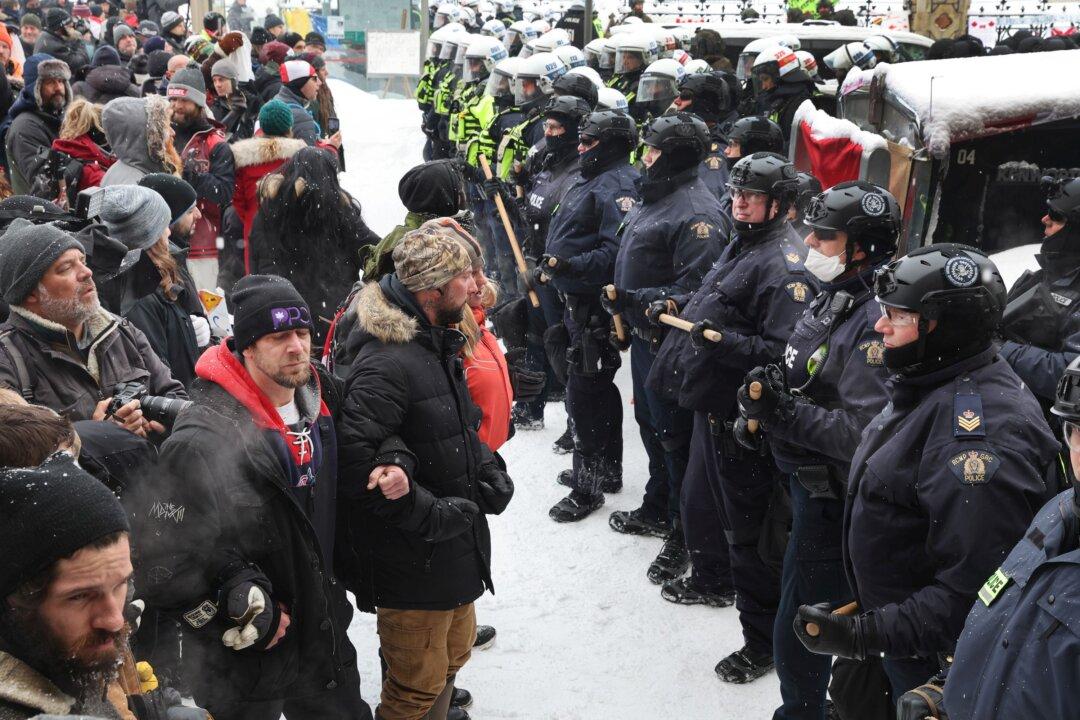Had the Emergencies Act not been invoked by the Liberal government, law enforcement would still have cleared the Freedom Convoy protests with the federal, provincial, and municipal police forces working together, says Ottawa Police Service (OPS) interim chief Steve Bell.
“In the absence of the invocation of the Emergencies Act, the OPS, the OPP [Ontario Provincial Police], the RCMP—as part of unified command—were going to clear the protests,” Bell told the Public Order Emergency Commission at its Oct. 24 hearing as part of its independent public inquiry into the federal government’s use of the act.





